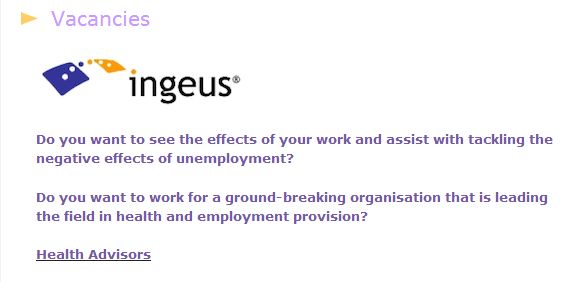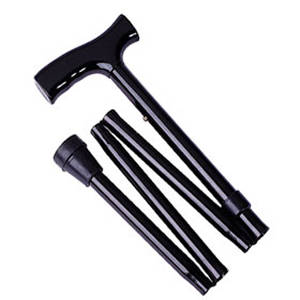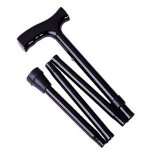
Welfare-to-work provider Ingeus are recruiting Occupational Therapists to become “Health Advisors” as part of a pilot scheme to help people on ESA (sickness benefits) to return to work. As I wrote yesterday, people receiving ESA in the Work Related Activity Group will be forced to see these Health Advisors and will lose their benefits if they do not. This is a huge problem for all kinds of reasons which you can read about in my previous blog post. An advert placed by Ingeus on the website of the Vocational Rehabilitation Association reveals more details of how the scheme will work.
“From 25th November 2013 Ingeus will be delivering a new Department for Work & Pensions (DWP) Health Professional led contract for customers claiming Employment and Support Allowance (ESA) with an 18-24 month prognosis post Work Capability Assessment (WCA). The 2 year pilot programme will ensure clients have access to suitably trained Health Professionals to support the management of their health and wellbeing. We are looking to recruit Occupational Therapists to deliver the ESA pilot across the Central Region.”
It gets worse though. Perhaps unsurprisingly, the words “Bio-psychosocial model” make an appearance.
“Delivering bio-psychosocial initial health assessments to identify clients health related concerns and barriers to returning to work, usually taking place via face to face 1:1 appointments but may also require telephone based interventions as well as on occasions a home/community visit.”
The Bio-Psychosocial model of disability is what the government have adopted after decades of being advised by insurance company UNUM. The model basically says that disability is all in the mind of the disabled person and they only need to adopt a better attitude to overcome barriers to work and other activities. It places blame for being ill on the patient and insists that they can just think their way better, as though thinking can eradicate viruses or fix broken genes or regrow broken or missing body parts.
I think access to an extra doctor, nurse, OT or some one else could really be a great help to a lot of sick and disabled people but not through this scheme. Any extra healthcare needs to be consensual and voluntary, this is not. The money spent on this scheme would be far more useful given to the NHS. And as for this scheme using the bio-psychosocial model, you might as well just tell sick and disabled people to “snap out of it”.
Where’s The Benefit: Models of Disability
Vocational Rehabilitation Association: Ingeus advert
Sick people to be forced to talk to the DWP’s own “healthcare professionals”



 Sometimes I have to use a walking stick. I walk with a stick because sometimes the pain is too much to put weight on my legs, or my muscles are too weak to hold me up, or I am too dizzy and lack the balance to remain upright. I especially need the stick when I am standing still as without it I can fall over due to all of the above.
Sometimes I have to use a walking stick. I walk with a stick because sometimes the pain is too much to put weight on my legs, or my muscles are too weak to hold me up, or I am too dizzy and lack the balance to remain upright. I especially need the stick when I am standing still as without it I can fall over due to all of the above.